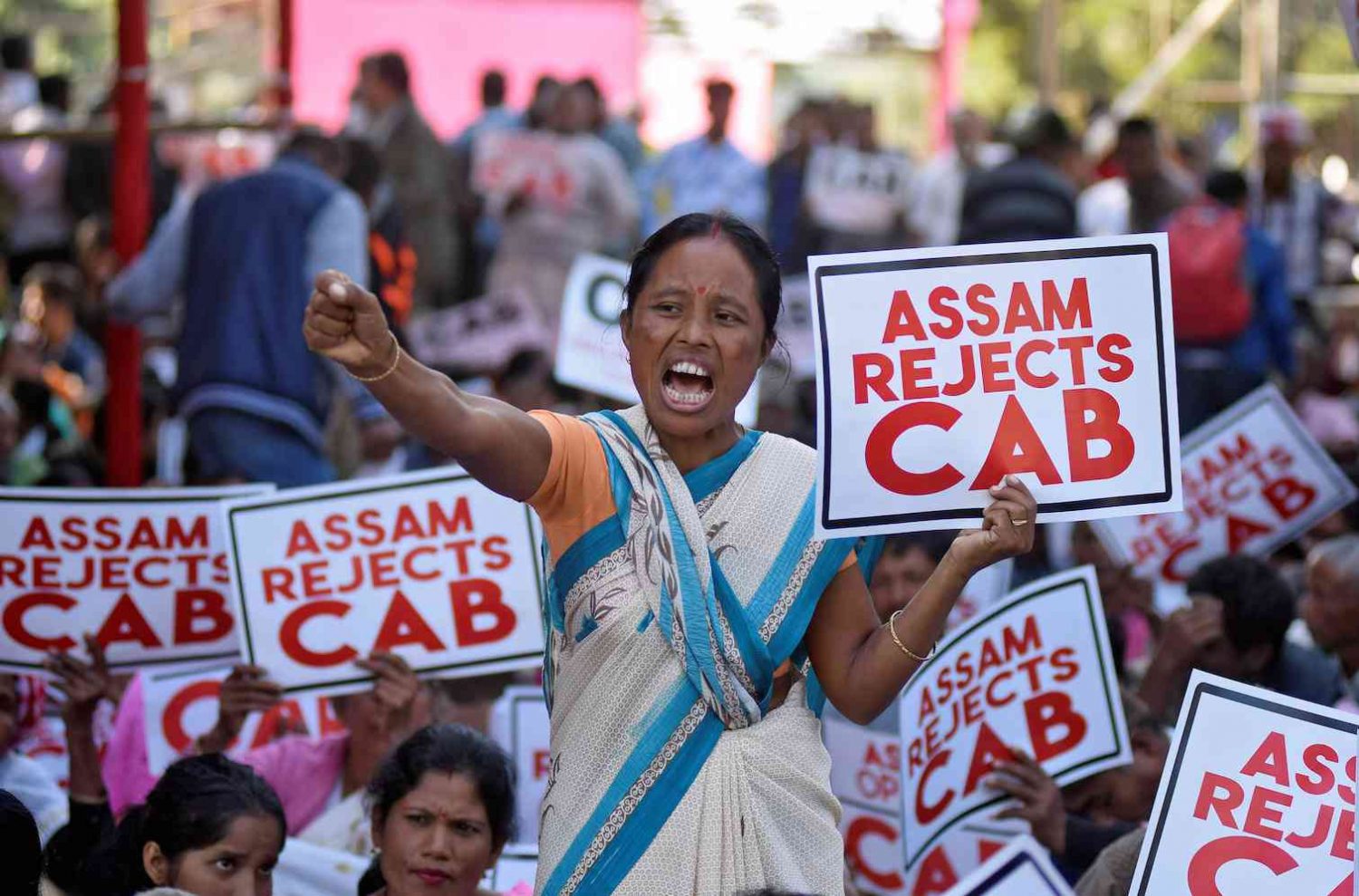Is it the perfect evening for protest?
As the evening sun sets, the screams grow louder and louder and the explosions sound closer and closer. The moon rises and its cold rays cast an eerie light on the rising columns of teargas smoke.
This is the first popular uprising for those of us born after the 1980s. Up until now we had only heard stories of the Assam Movement our elders spoke of. And now we find ourselves in one. But the full moon beams aren’t the only thing lighting up the dark in Assam. The full-throated cries of “Joi Ai Axom” and “O Mur Apunar Dexh” are also giving us some sort of courage.
Educated Indians acquainted with Indian history often talk about the lack of a national movement after independence. India, they say, has lacked a revolution, a united cause. Yes, there have been protests and demonstrations over Kashmir, secularism, gender movements and more, but a lot of this has been restricted to social media platforms, like Twitter and Facebook.
But today, it feels like a real thing.
We were born free but we are now in chains. Today we feel the pain of those who actually have lived through an uprising.
This unrest is not ‘political’ for us. Believe it or not, ‘politics’ is the last thing an Assamese thinks of. For us, it is the idea of deprivation and the threat to our identity that has brought everyone, regardless of gender, age, ethnicity and profession onto the streets. Understanding the mind and desires of this region should have been the priority of not only the entire country but of the world who are watching the chaos unfold.
As usual, power politics have overshadowed the feelings of an Assamese. Please try and understand us.
The people of the Northeast (and Assam in particular) do not want more immigrants. Period. And this has nothing to do with religion as it is being made out to be. The sound of the azaan from the nearby mosque does not bother us.
This is about our history, our language and our folklore. Small, self-sufficient and secure is how we like to look at ourselves. That’s what defines our psychological identity. Today, that identity is under threat. Is that so hard to understand?
The country seems to be divided on the stand they need to take on the Citizenship (Amendment) Act (CAA).
Those opposing the Act are fighting against its “inhumane” or “discriminatory” nature. On the other hand, those in favour are wondering whom to soothe more – the foreign countries or the people who will support them politically.
It would be amusing if it wasn’t so ironic. The Indian government wants to provide protection and refuge to those who are persecuted in the neighboring countries (besides Muslims, Tamils, Rohingyas, Madheshis etc. of course) How noble!
But what about us, who do not want any more pressure on ourselves by having to accommodate more outsiders?
The spooky evening turns into night, and a few short hours later, a new day dawns.
The deserted streets look like they have witnessed a war. Burning tyres, stones, wreckage, torn decorations for the now aborted Indo-Japanese Summit. My mother is in hospital. She has just had a surgery. I leave for the hospital at 5:30 am because of the curfew hours. I wish I could protest, but I can’t. I have an ailing mother to look after.
Somewhere deep down, my heart sinks into regret for not being able to physically stand for a cause like every true Assamese is doing today; for not continuing what my grandparents and parents fought for; for not following a legacy. And above all for getting a chance to re-live the past by fighting for “Axomi Aai” and yet not being able to do so.
I get to the hospital. Suddenly, something like a bomb goes off outside. Teargas streams through the window, making my eyes water and burning my throat. And then I hear, someone outside has just lost their life. And in just a few seconds two more.
I stay all day at the hospital. I cannot leave because of the curfew. Night falls. There are no medicines. Oxygen supplies are running low. Food is scarce. A crate of eggs cost me about Rs. 300. The moon rises again. It is a mute spectator to the bravery and determination of an Assam that has decided not to keep quiet anymore. Perhaps this is the difference between now and then. Perhaps this is the reason why Lachit Borphukon and Maniram Dewan still rise in our throats.
The rest of the country may know what is going on. But they will never feel what we feel, will they?
So, is this a mass struggle? This region, defined by its ethnic differences, is witnessing the birth of a united cause after decades of disunity. But it will only be a mass struggle like the Civil Disobedience of 1930, if the entire country stands with us.
While blood and fire engulf this region, there are those who dance, rejoice and share laddoos because a ghastly Bill has been pushed through both houses of Parliament.
Do you understand why we feel the way we do? We have been hurt. We have asked again and again for help but we have been ignored. We have been let down. We never wanted to do this but you have left us with no choice.
And now, we fight our own battle.
Featured image credit: Reuters

